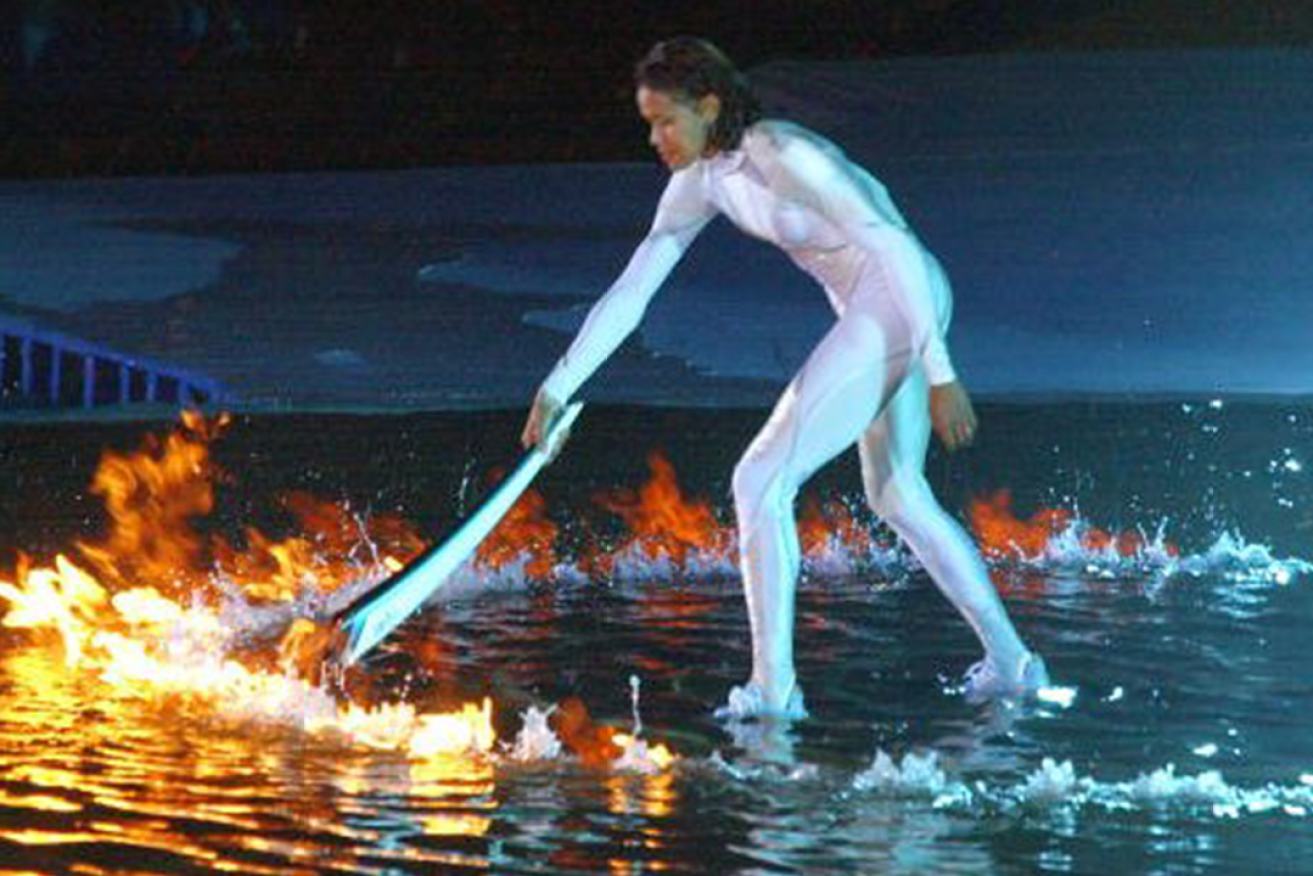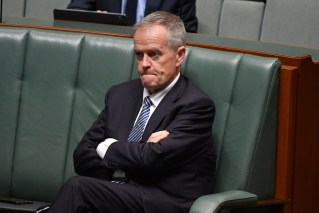Oxford University study that says we should walk away from Qld’s Olympic bid
As Queensland moves closer to a formal bid to host the 2032 Olympics in the state’s southeast, a controversial report warns of potential pitfalls of the project, writes Tracey Holmes

“The best Games ever” are being remembered in Sydney and around Australia 20 years after Cathy Freeman lit the cauldron to signal the start of the first Olympics of the new millennium.
While anybody over 30 is no doubt having those “where were you?” conversations, it is a very different one taking place at Olympic HQ in Lausanne.
A team of researchers from Oxford University’s Said Business School will publish an open letter to the International Olympic Committee (IOC) that in part advises bidding cities and nations to “walk away” from any plans to host the Games.
Did they not get their invite to the party? Are they spoilsports? Are they purposely raining on Sydney’s parade?
One of the authors, Alexander Budzier, a fellow in management practice at Oxford, told the ABC that the research paper Regression to the Tail: Why the Olympics Blow Up, provided suggestions to keep the Games relevant and viable, rather than them becoming an outdated, economic burden that no city wants to take on.
He said they looked at two things.
“One is ‘how much does it cost to host the Olympic Games?’, which is a lot of money, and also ‘what is the risk behind that?’,” Dr Budzier said.
“You get sold a deal at some point in time and then seven years later, once it’s all over you do the big tally up of what it really costs, and you find out ‘that was a lot more than we initially were told’.”
The team searched for financial records for every Olympic Games from Rome 1960 to Rio 2016 although they say they could not locate “valid and reliable data on cost overruns” for 11 out of the 30 Games.
According to their data the Sydney 2000 Olympic Games cost $US5.026 billion ($6.91 billion), with a cost overrun of 90 per cent.
Measured another way, Sydney 2000 cost $US16.8 million ($23.11 million) per sporting event or $US500,000 ($687,760) per athlete.
Sydney’s Games look good compared to some others.
On average, Olympic Games budgets are exceeded by 172 per cent.
The Rio de Janeiro Games in 2016 cost $US13.7 billion ($18.84 billion), had a 352 per cent cost overrun, each sporting event cost $US44.7 million ($61.5 million), or $US1.3 million ($1.8 million) per athlete.
The worst was the 2014 Sochi Winter Olympic Games with a price tag of $US21.9 billion ($30.1 billion), a cost overrun of 289 per cent, with each event costing $US223.4 million ($307.3 million) or $US7.9 million ($10.9 million) per athlete.
“It’s quite interesting because there’s a massive imbalance of power between the IOC and the cities who actually take on the task of hosting it … the way the system currently works doesn’t seem to be something that we think most people would easily accept and that’s why we see people walking away from [bidding for] the Games,” Dr Budzier said.
Host city contracts stipulate that any additional costs, or overruns, are taken on by the city or state and not by the IOC.
The postponed Tokyo 2020 Olympic Games are already 200 per cent over the budget estimated in the bid documents currently sitting at $US15.84 billion ($21.8 billion).
Budzier concedes the “feel good factor” or economic return on infrastructure built during a Games is not measured in the report, but that is not what it was designed for.
“What we really want to achieve is a kind of thinking about ‘how can we turn this around? How can we have these Games in the future?’,” he said.
“The Olympic movement is one that has values and the mission they have about spreading it worldwide etc, these are all great messages and great vision and a great mission, but the way the system is set up at the moment that doesn’t clearly work.
“So, what we’re outlining here is it actually needs some more radical thinking than we’re currently seeing in the Olympic movement.
“It isn’t us saying we shouldn’t have any Olympics anymore, or saying now everybody at the IOC needs to be fired, but these are kind of steps in the right direction that we think could actually really help.”
The “Six Steps to Better Games Management” in the report are:
The IOC and potential hosts must understand the existence of “fat tails” as a matter of fact — that is, that hosting the Games is an extremely risky business in terms of costs;
Once the risks are understood it becomes immediately clear that larger cost contingencies are needed for the Games;
The IOC should have skin in the game as regards cost, that is, it should hold some of the cost risk that arise from staging the Games;
Anything that can be done to shorten the seven-year delivery phase for the Games should be considered;
To directly tackle the “Eternal Beginner Syndrome”, proposals have been put forward to host the Games in one or a few permanent locations;
Finally, and perhaps most effectively, prospective host cities could mitigate their risk by simply walking away from the Games.
The team from Oxford hopes the IOC warms to their proposals now that the report is officially being published.
“We’re also going to reiterate some of those points in an open letter to [IOC President] Thomas Bach,” Budzier said.
“In the letter we say, ‘come on, you don’t have to talk with us directly but at least you have to lift a little bit the whole discussion around your plans for changing the Olympic movement and changing how the IOC works with host cities to really get a grip on this’.”
When asked whether the authors actually like the Games, Budzier responded:
“Yes. Absolutely, it’s just the business that’s so horrible.”
– ABC












